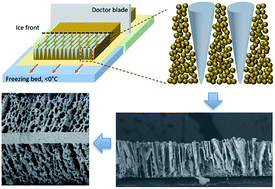Solid-state electrolyte considerations for electric vehicle batteries
Abstract
The recent upsurge of interest in all solid-state lithium batteries for electric vehicles is driven by a need for improved safety and higher energy densities than what are currently available from conventional lithium-ion batteries. Replacement of flammable liquid electrolytic solutions with solid electrolytes allows the use of higher energy lithium metal anodes instead of graphite, and lessens the probability of catastrophic failure, which can result in fire. Most solid-state batteries available today, however, are fabricated in small, thin film formats requiring costly vacuum deposition technologies, and suffer from low practical energy densities due to low areal capacities that restrict their use to specialty applications. In this article, we discuss the current status of solid electrolytes for solid-state lithium batteries and what is needed from a cell design and fabrication viewpoint to develop large format devices for traction applications.



 Please wait while we load your content...
Please wait while we load your content...